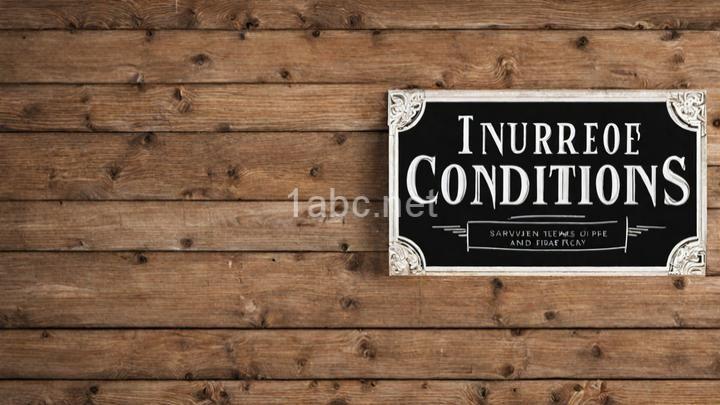Saving Money, Protecting Your Future: Budget-Friendly Insurance Options

Introduction:
Welcome to our blog post on budget-friendly insurance options! We understand the importance of insurance in protecting yourself and your future. In this article, we will provide you with tips and suggestions on how you can save money while still obtaining adequate insurance coverage. So, let's dive in and explore the world of budget-friendly insurance!
I. Assess Your Insurance Needs
Insurance is a vital aspect of our lives, protecting us from unexpected events and providing financial security. To start, it's important to understand the various types of insurance coverage available, such as health, auto, home, and more. Each type of coverage serves a unique purpose and safeguards different aspects of our lives.
As you assess your insurance needs, take into consideration factors such as your age, health condition, family size, and assets. These factors play a significant role in determining the necessary coverage you need. For example, if you have a family, health insurance is crucial to cover medical expenses for both you and your loved ones. Similarly, if you own a car, auto insurance is a necessity to protect yourself against accidents or damages.
II. Research Different Insurance Providers
When it comes to insurance, it's always a good idea to shop around and explore different providers. Each insurance company offers different coverage options and pricing structures. By obtaining multiple quotes, you can compare prices and coverage to find the best fit for your needs.
To simplify the research process, consider utilizing online resources or working with an independent insurance agent. These resources can provide you with a comprehensive overview of available options and help you make an informed decision. Remember, finding the right insurance provider is not just about the cost but also about the quality of coverage and customer service they offer.
III. Bundle Your Policies
One effective way to save money on insurance is by bundling multiple policies with one provider. By combining policies, such as auto and home insurance, you can often receive significant cost savings. Additionally, bundling renter's or homeowner's insurance with other forms of coverage can also result in lower premiums.
When bundling policies, don't be afraid to negotiate discounts with your insurance provider. They often have incentives in place to encourage policy bundling, such as multi-policy discounts. So, take advantage of these opportunities and save more money while ensuring comprehensive coverage.
IV. Increase Deductibles
Another strategy for saving money on insurance premiums is by increasing your deductibles. A deductible is the amount you must pay out of pocket before your insurance coverage kicks in. By opting for a higher deductible, you can lower your monthly premiums.
Of course, it's important to consider your financial situation before increasing your deductibles. Higher deductibles mean you would need to pay more in the event of a claim, so ensure that you have enough savings to cover the deductible amount. However, if you can comfortably afford a higher deductible, this can be a great way to reduce your insurance costs.
V. Take Advantage of Discounts
Insurance companies often offer various discounts to policyholders. These discounts can help you save a significant amount of money on your premiums. Examples of common discounts include safe driver discounts, multi-line discounts, and discounts for installing safety devices in your home or car.
To qualify for these discounts, maintain a good driving record, take defensive driving courses, and install safety features such as smoke detectors or anti-theft devices. It's also important to regularly review your policy terms to ensure you are still eligible for available discounts. As your circumstances change, you may become eligible for new discounts, so don't miss out on potential savings.
VI. Review Your Coverage Regularly
Life is constantly evolving, and so are our insurance needs. It's essential to review your insurance coverage periodically to ensure it aligns with your current needs. We recommend reviewing your policies at least annually, but it's also a good idea to reassess your coverage whenever you experience significant life changes.
For example, if you recently got married or had a child, you may need to update your life insurance policy to provide adequate coverage for your growing family. Similarly, if you purchased a new home, you'll want to ensure your homeowner's insurance reflects the value of your property and belongings.
Conclusion:
We hope this article has provided you with valuable insights into budget-friendly insurance options. Saving money on insurance doesn't mean compromising on coverage. By assessing your insurance needs, researching different providers, bundling policies, increasing deductibles, taking advantage of discounts, and reviewing your coverage regularly, you can find the perfect balance between affordability and protection.
Remember, insurance is an investment in your future. It provides peace of mind and financial security when unexpected events occur. So, take the time to explore your options, compare quotes, and make informed decisions. For more tips and resources on personal finance and insurance, be sure to explore our website. Here's to saving money and protecting your future!
FREQUENTLY ASKED QUESTIONS
How can budget-friendly insurance options help me save money?
Budget-friendly insurance options can help you save money in several ways. First, these options typically have lower premiums, which means you'll pay less each month for coverage. This can free up extra cash in your budget for other expenses or savings.Second, budget-friendly insurance options often come with higher deductibles. While it may seem counterintuitive, choosing a plan with a higher deductible can actually save you money in the long run. With a higher deductible, you'll have a lower monthly premium, but you'll be responsible for paying a larger portion of your medical bills before your insurance coverage kicks in. However, if you're generally healthy and don't anticipate needing frequent medical care, this can be a cost-effective choice.
Additionally, budget-friendly insurance options typically offer a more limited network of providers. While this may seem like a drawback, it can actually work to your advantage if you're willing to be flexible with your healthcare choices. By using in-network providers and facilities, you can take advantage of negotiated rates and discounts, which can further reduce your out-of-pocket expenses.
Lastly, budget-friendly insurance options often provide essential coverage for preventive care and basic medical services. This can help you avoid costly medical bills down the line by catching any potential health issues early on.
Overall, choosing a budget-friendly insurance option can help you save money by offering lower premiums, higher deductibles, access to discounted rates, and coverage for essential healthcare services. It's important to carefully consider your own healthcare needs and budget before making a decision.
What types of insurance options are considered budget-friendly?
When it comes to budget-friendly insurance options, there are a few types that you might want to consider. One option is liability insurance, which covers any damages or injuries caused by you to others. This type of insurance tends to have lower premiums compared to other types. Another budget-friendly option is a high deductible health insurance plan, which typically has lower monthly premiums but higher out-of-pocket costs. Additionally, if you're looking for car insurance, choosing a policy with a higher deductible can help lower your monthly payments. Finally, bundling your insurance policies, such as combining your home and auto insurance, can often lead to discounts and cost savings. Remember, it's always important to carefully review and compare different insurance options to find the best fit for your budget and coverage needs.
Are budget-friendly insurance options less comprehensive than other insurance plans?
Budget-friendly insurance options may have lower premiums compared to other insurance plans, but it does not necessarily mean they are less comprehensive. The comprehensiveness of an insurance plan depends on several factors, including the coverage options and limits provided. While budget-friendly plans may have more limited coverage or higher deductibles, they can still offer essential coverage for common medical expenses, such as doctor visits, prescription medications, and preventive care.It is important to carefully review the details of any insurance plan, regardless of its cost, to understand what is covered and what is not. Some budget-friendly plans may exclude certain services or have limitations on coverage for certain conditions. However, they can still provide valuable coverage for basic healthcare needs.
When comparing insurance plans, it is crucial to consider your individual needs and priorities. If you have specific healthcare requirements or anticipate needing specialized treatments or services, a more comprehensive plan may be a better fit. On the other hand, if you are generally healthy and primarily need coverage for routine care, a budget-friendly plan could be a suitable option.
Ultimately, the comprehensiveness of insurance plans can vary across different providers and policies. It is essential to carefully evaluate the coverage details and consider your personal circumstances to determine the best insurance option for your needs and budget.
How can I find budget-friendly insurance options?
When it comes to finding budget-friendly insurance options, there are a few steps you can take to make the process easier. First, it's important to assess your insurance needs and determine what coverage is essential for you. This will help you avoid paying for unnecessary coverage and focus on what matters most.Next, do some research and compare quotes from different insurance providers. This will give you an idea of the price range for the coverage you need. There are many online tools and websites that can help you with this, allowing you to easily compare rates and find the best deal.
Consider bundling your insurance policies as well. Many insurance companies offer discounts if you purchase multiple policies from them, such as combining your auto and home insurance. This can help you save money in the long run.
Additionally, don't hesitate to ask for discounts. Some insurance companies offer discounts for things like having a good driving record, being a student, or being a member of certain organizations. It's always worth asking about potential discounts that you may qualify for.
Lastly, consider increasing your deductibles. A higher deductible means you'll have to pay more out of pocket in the event of a claim, but it can also lower your insurance premiums. Just make sure you have enough savings set aside to cover the deductible if needed.
Remember, finding budget-friendly insurance options is all about doing your research, comparing quotes, and being proactive in seeking out potential discounts. By following these steps, you can find an insurance policy that fits your budget without sacrificing the coverage you need.



